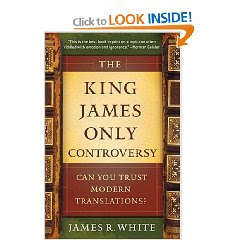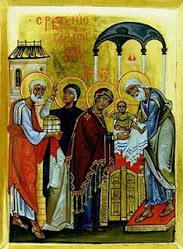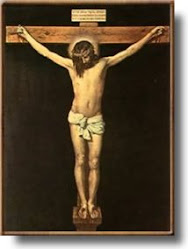
Gay minister's appointment divides Church of Scotland
• More than 12,000 church members signed petition in protest
• Activists for equal rights say decision is blow against prejudice
Severin Carrell, Scotland correspondent
guardian.co.uk, Sunday 24 May 2009 18.39 BST
Article history
Campaigners for gay rights have welcomed a landmark decision by Scotland's largest Protestant church to appoint an openly gay minister to a new post.
The Church of Scotland voted late last nightto allow the Rev Scott Rennie to become minister at a church in Aberdeen, despite a vigorous protest campaign against his appointment by conservative and anti-gay evangelical groups.
Rennie is the first openly gay clergyman in a sexually active relationship in the UK to have his appointment officially confirmed by his church's governing body, breaking with centuries of Protestant tradition.
More than 12,000 people, including 272 serving Church of Scotland ministers, more than 700 ministers from Protestant and Catholic churches in Britain and Ireland, and more than 500 ministers from overseas, signed an online petition objecting to his new posting.
After a four-hour debate last, the church's general assembly, its governing body, voted by 326 to 267 to uphold his new posting. It will debate a new motion on whether to completely bar gay men and lesbians from the church – a vote the conservatives now face losing.
Senior gay rights campaigners in the Church of England, which is trying to prevent a deep split in the worldwide Anglican communion over the ordination of gay clergy, said Rennie's victory would significantly strengthen the pressure for reform.
The Rev Colin Coward, the chairman of the Anglican pressure group Changing Attitudes, said there were hundreds of gay clergy and several gay bishops in the Church of England, and bishops who supported civil partnerships. Their case for official recognition that gay men and lesbians in long-term partnerships had the same rights within the church would be "enhanced" by Rennie's appointment.
"It's very significant that the Church of Scotland has voted in this way," he said. "The pressure is especially on conservatives in the church to examine carefully the distinction they try to make between orientation and practice."
The Rev Martin Reynolds, of the Lesbian and Gay Christian Movement, said: "This is a significant moment. I think the Church of England is stuck in refusing to acknowledge the presence of lesbian and gay people in its ranks."
Senior Church of Scotland traditionalists were furious about the vote, arguing that it created a worldwide precedent that authorised the ordination and appointment of gay clergy and "brought shame" on their church. "It sends a clear signal to the world that our denomination has departed from the teaching of the Christian Scriptures, upon which its very existence depends. It is a deeply painful day for all who love Christ and his Gospel," said the Fellowship of Confessing Churches.Two leading conservatives, the Rev David Court from Edinburgh and the Rev William Philip from Glasgow,, played down earlier warnings that it would lead to a split in the Scottish church, but warned it would alienate many lay members: "We deeply regret the decision of the general assembly, which has brought great shame on the name of our lord, Jesus Christ, and his church by publicly proclaiming as holy what God, the Bible, and orthodox Christianity all down the ages, and all over the world, unambiguously call sin.
"This is about far more than just sexuality. The very nature of the Christian gospel is at stake."
Rennie's confirmation came after 12 conservative and evangelical Church of Scotland several members in the Aberdeen presbytery, the area's ruling body, objected to his appointment as minister of Queen's Cross church in January. A divorcee who is currently minister of Brechin cathedral, Rennie told the Queen's Cross congregation he was gay and in a permanent relationship. The protesters said that contradicted the church's decision in 2007 to delay making policy on ordained gay or lesbian ministers.
The Rev Ian Aitken, the protesters' spokesman, said the, told the general assembly that Aberdeen presbytery was unilaterally making church policyand challenging its unity when it endorsed Rennie's appointment. "Our presbytery struck out on its own, and effectively made a decision for the rest of the church," he said.
Rennie, whose campaign was supported by his former wife, Helen Rennie, told The Guardiantoday he was "humbled" that the general assembly had endorsed him.He had been "personally hurt" by the attacks on his appointment and private life, he said, but added that it would help open up the church to all Christians. "I think the gospel is about hope and not about fear," he said. "I hope that a lot of people across Scotland and the UK will receive this decision as one of hope, and whatever the future holds, we need a spirit of hope so we talk together and we're not paralysed by fear. Fear has nothing to do with the gospel. In fact Jesus so often said to his disciples 'do not be afraid'."
He added: "I'm already serving in a parish and so are other gay ministers serving in a parish. Are we never to move?
"The question was about the call of God in my life, the call of God in a congregation's life, and we've to respond. Everybody responds to the call of God. Just because I'm gay doesn't mean that I shouldn't."
http://www.guardian.co.uk/uk/2009/may/24/scotland-aberdeen-gay-priest-protestant



































Nessun commento:
Posta un commento